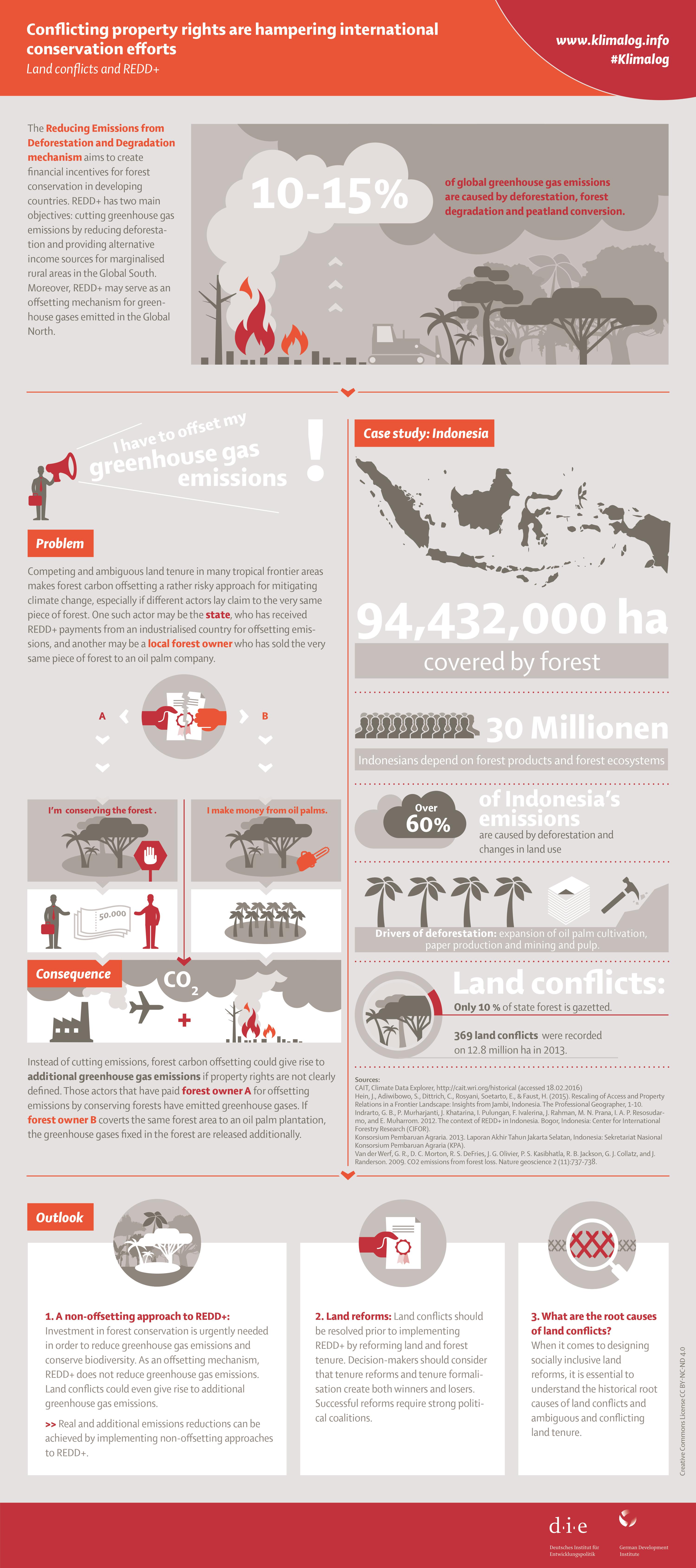Learn|Forests|Policy
Conflicting property rights are hampering international conservation efforts

The Reducing Emissions from Deforestation and Degradation mechanism aims to create financial incentives for forest conservation in developing countries. REDD+ has two main objectives: cutting greenhouse gas emissions by reducing deforestation and providing alternative income sources for marginalised rural areas in the Global South. Moreover, REDD+ may serve as an offsetting mechanism for greenhouse gases emitted in the Global North. Learn more by reading the infographic published above.
All infographics have been developed within the project Klimalog, which is financed by the Federal Ministry for Economic Cooperation and Development (BMZ).
The infographic is also available in German:
Was haben ungeklärte Landrechte mit dem Klimawandel zu tun? Risiken von Waldschutzabkommen wie REDD+
The German Development Institute / Deutsches Institut für Entwicklungspolitik (DIE) in brief
The DIE is one of the leading research institutions for development policy world-wide. It is based in the UN City of Bonn. DIE builds bridges between theory and practice and works within international research networks. The key to DIE’s success is its institutional independence, which is guaranteed by the Institute’s founding statute. Since its founding in 1964, DIE has based its work on the interplay between Research, Consulting and Training. These three areas complement each other and are the factors responsible for the Institute’s distinctive profile.
The German Development Institute / Deutsches Institut für Entwicklungspolitik (DIE) is headed by Prof. Dr. Dirk Messner (Director) and Dr. Imme Scholz (Deputy Director).



